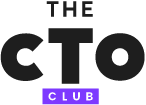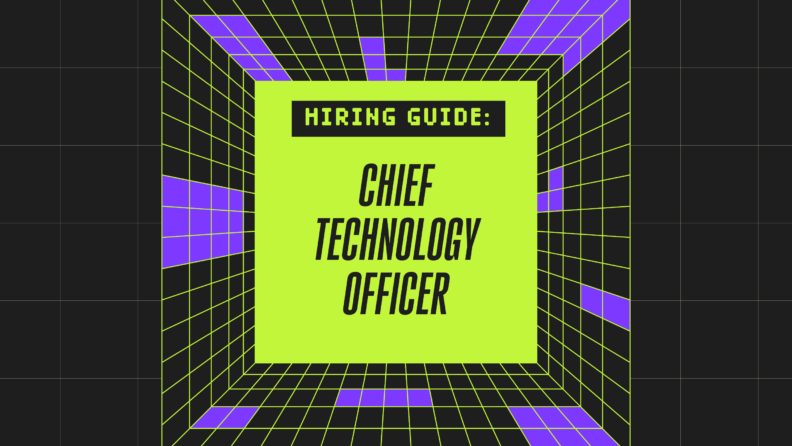In today's technology-driven business landscape, the role of a chief technology officer (CTO) is critical in shaping a company's technology roadmap and driving innovation. The CTO serves as a strategic leader for the IT department and oversees the development, implementation, and management of all technological aspects within an organization.
As a C-level executive, a CTO’s responsibilities include leading an organization's technological vision, strategies, and execution. The CTO collaborates closely with cross-functional team members, including the chief information officer (CIO) and the chief executive officer (CEO), product development, marketing, and operations, to align technology initiatives with business goals.
While the CTO role may differ significantly based on the size and stage of a company’s growth, the ultimate goal is to ensure an organization has the technological resources to deliver top-performing products and services and meet business goals.
Field CTO Public Sector at MuleSoft, Dave Egts, says, "Technical acumen and a growth mindset are table stakes in the CTO role, but technical skills and curiosity do no good if you can't effectively communicate with your stakeholders and customers. The best CTOs are the ones who empathize with their stakeholders and customers to understand their needs; demonstrate that they've been heard, and paint a vision of how technology can help them solve their current challenges and uncover challenges and solutions they may not have considered yet."
This article provides a comprehensive job description of a CTO, highlighting key responsibilities, required skills, education, qualifications, and more.
Roles and Responsibilities
The CTO is in a leadership role that is pivotal in aligning technology strategies with business goals. Their responsibilities span across various domains, encompassing both strategic and leadership functions:
1. Technology Strategy and Innovation: The CTO is entrusted with defining and executing the company's technological vision. This involves staying abreast of technology trends or emerging technologies, assessing their relevance to the business, and recommending innovative solutions that provide a competitive edge.
2. Team Leadership and Management: CTOs are responsible for leading and managing the technology team, which includes software developers, engineers, data scientists, and other IT professionals. They help with time management and provide guidance, mentorship, and resources to ensure efficient and effective project execution.
3. Technical Architecture and Infrastructure: CTOs design the organization's technical architecture and infrastructure, ensuring scalability, security, and reliability. They evaluate and adopt suitable technologies that streamline operations and enhance performance.
4. Product Development: CTOs collaborate with cross-functional teams to drive the development of technology products aligned with business goals. They oversee the entire product lifecycle, from concept to launch.
5. Research and Development (R&D): Continuous innovation is a cornerstone of the CTO role. This involves leading R&D efforts, experimenting with new technologies, and fostering a culture of creativity and exploration within the technology team.
6. Cybersecurity and Risk Management: In an era of heightened cyber threats, CTOs ensure robust cybersecurity measures across the organization's digital landscape. They develop and implement strategies to mitigate risks and protect sensitive data.
7. Strategic Partnerships: CTOs often forge strategic partnerships with technology vendors, startups, and industry leaders. These collaborations can lead to the adoption of cutting-edge solutions and the exploration of new business opportunities.
8. Budgeting and Resource Allocation: Effective resource management is crucial. CTOs create and manage technology budgets, allocating resources optimally to support various initiatives while maintaining financial discipline.
9. Cross-Functional Collaboration: Collaborate with other executives, such as the CIO and CEO, to understand business needs and ensure technology solutions align with those needs.
With digital transformation at the forefront of business strategy, the CTO has emerged as a key player in the C-suite. A highly skilled CTO can make all the difference in propelling your organization towards its short- and long-term goals.
Strategic Frameworks for Technology Leadership
Aligning Tech and Business Goals With the V-Model
The V-Model is an extension of the waterfall model and is highly effective in managing complex SaaS projects. It emphasizes verification and validation, allowing CTOs to meticulously align technology development with business needs. By implementing this framework, CTOs can ensure that each development phase is directly associated with a testing phase, promoting a thorough understanding of objectives and meticulous quality assurance.
Driving Innovation With the Three Horizons Model
The Three Horizons Model provides a structured approach for CTOs to balance the focus on current operations, incremental improvements, and breakthrough innovations. This model encourages strategic foresight and planning, which is vital for sustaining long-term growth in the SaaS industry. It allows CTOs to categorize initiatives into:
- Horizon 1: Core initiatives that contribute to current business success.
- Horizon 2: Emerging opportunities that promise growth in the medium term.
- Horizon 3: Long-term, transformative ideas that could redefine the industry.
By leveraging this framework, CTOs can diversify their strategic portfolio and align technological investments with different stages of business evolution.
The Lean Startup Methodology For Continuous Innovation
In the fast-paced SaaS sector, CTOs can adopt The Lean Startup Methodology to enhance agility and responsiveness. This iterative approach to business development centers around the ‘Build, Measure, Learn’ loops, encouraging rapid prototyping and user feedback integration. It's handy for CTOs looking to foster a culture of continuous innovation and adaptability within their teams.
Required Skills and Qualifications
The role of a chief technology officer demands a unique blend of technical expertise, leadership skills, years of experience, and business acumen. Here are the key qualifications and skills required to excel as a CTO:
1. Technical Proficiency: CTOs should possess a strong foundation in technology, with a deep understanding of software development, cloud computing, cybersecurity, and emerging tech trends such as artificial intelligence and quantum computing.
2. Leadership and Communication: Exceptional leadership skills are essential for guiding and motivating the technology team. CTOs should also have excellent communication skills to articulate complex technical concepts to non-technical stakeholders.
3. Strategic Thinking: The ability to align technology strategies with broader business goals and industry trends is a hallmark of an effective CTO. They should have a forward-thinking vision that anticipates industry trends and adapts the company's tech roadmap accordingly.
4. Problem-Solving and Decision-Making: CTOs must be adept at identifying and solving complex technological challenges. Decisive decision-making, often under pressure, is critical to ensure smooth operations and project success.
5. Business Acumen: Understanding the organization's industry, market dynamics, and competitive landscape is essential. CTOs must leverage technology to drive revenue growth and gain a competitive advantage.
6. Adaptability: The technology landscape evolves rapidly. CTOs should be adaptable and open to learning new technologies and methodologies to stay ahead of the curve.
7. Collaboration and Networking: Building strong relationships with external partners, industry peers, and stakeholders can lead to valuable collaborations and insights contributing to the company's success.
8. Project Management: Skills to manage complex IT projects, set priorities, and meet deadlines.
Certifications
Certifications can enhance a CTO's credibility and showcase expertise. Some relevant certifications include:
- Certified Information Systems Security Professional (CISSP): Demonstrates cybersecurity and information security management expertise.
- Project Management Professional (PMP): Validates project management skills and methodologies.
- TOGAF (The Open Group Architecture Framework): Focuses on enterprise architecture and aligning technology with business goals.
- Certified ScrumMaster (CSM): Highlights proficiency in agile methodologies and collaborative project management.
Education
The role of a Chief Technology Officer (CTO) typically demands a robust educational background and a diverse set of skills. Most CTOs hold at least a bachelor's degree in a relevant discipline such as computer science, engineering, information technology, business administration, or a related field. Many aspiring CTOs pursue advanced degrees, such as a master's degree or even a Ph.D., to deepen their technical expertise and gain a comprehensive understanding of emerging technologies.
In addition to formal education, CTOs often engage in continuous learning, attending workshops, conferences, and online courses to stay up-to-date with the rapidly evolving tech landscape.
Additional Qualifications
Other qualifications and courses that aspiring CTOs should consider include:
- Master of Business Administration (MBA) with a focus on Information Technology or Technology Management: An MBA equips professionals with a blend of business acumen and technical knowledge necessary for strategic decision-making at high levels of management.
- Certifications in cloud technologies: As SaaS relies heavily on cloud services, certifications from providers like AWS, Google Cloud, or Microsoft Azure can be valuable.
- Data science and analytics courses: Understanding data is crucial for SaaS CTOs. Courses or certifications from institutions like Coursera, edX, or proprietary programs from companies like IBM can be advantageous.
- Cybersecurity certifications: Given the importance of data security in SaaS, certifications such as CISSP or CISM are often sought after.
- Leadership and management programs: For CTOs leading large teams and managing substantial budgets, executive education programs in leadership from top universities can be very beneficial.
- Industry-specific seminars and workshops: Staying current with SaaS trends through industry-specific events, such as SaaS conferences or workshops, is essential for ongoing education.
- SaaStock: This event draws over 5,000 SaaS founders, executives, and investors. It's an essential networking event that offers learning opportunities from industry experts and provides a platform for business development and peer engagement.
- SaaStr Annual: Billed as the "Super Bowl for the SaaS community," this event hosts over 200 speakers from SaaS companies worldwide and offers opportunities for attendees to engage one-on-one with investors and receive advice on increasing SaaS revenue.
Salary Information
The salary of a CTO can vary widely based on factors such as company size, industry, location, and experience. The average salary for a Chief Technology Officer (CTO) is $173,598 in 2023, excluding bonuses and stock options. CTOs at established tech giants or high-growth startups can command even higher salaries.
Career Roadmap For CTOs
The path to becoming a CTO is typically characterized by progressive roles that build experience and skills. A common career roadmap includes:
- Technical Expertise: Begin as a software engineer, system administrator, or other technical role to build a strong foundation in technology.
- Mid-Level Leadership: Transition to roles like Technical Lead, Engineering Manager, or Director of Engineering to develop leadership skills.
- Executive Leadership: Advance to VP of Engineering or a similar role, overseeing larger teams and contributing to high-level technology decisions.
- CTO Role: Eventually, become a CTO, where you'll drive technology strategy, innovation, and business alignment.
Key Performance Indicators (KPIs) For CTOs in SaaS Companies
CTOs play a pivotal role in steering technology towards tangible business outcomes. Their performance is often gauged by specific KPIs that reflect their contribution to the company's growth and stability. Here are essential metrics that provide insights into a CTO's effectiveness:
- Innovation Rate: The frequency of new product launches or feature updates serves as a testament to a company’s commitment to innovation, a vital trait for any SaaS entity.
- Technology ROI: This critical metric evaluates the profitability and efficiency of technology investments, highlighting the CTO's acumen in aligning tech initiatives with business profitability.
- System Downtime: Minimized system downtime is crucial in a SaaS context, where constant availability underpins customer satisfaction and trust.
- Security Incidents: With cybersecurity being paramount, the number of incidents reflects the robustness of the security infrastructure a CTO oversees.
- Project Completion Rate: Timely completion of tech projects is a direct indicator of a CTO's project management skills and team efficiency.
- Team Productivity: Measured by output such as code commits or features shipped, this metric underscores the productivity and efficacy of the technology team.
- Customer Satisfaction: High satisfaction scores from users indicate the successful deployment and functionality of tech products under a CTO’s leadership.
- Cost Efficiency: This KPI shows the CTO's capability to optimize technology spend and contribute to the company's financial health.
- Adoption Rates: For new technologies or systems, high adoption rates by internal teams and end-users signal successful integration and usability.
- Compliance: Adherence to industry standards and regulations is non-negotiable, making compliance a top KPI for any CTO in the SaaS space.
By continuously monitoring these KPIs, CTOs can adjust their strategies to ensure their technological initiatives resonate with the company's broader business objectives and market demands.
Final Thoughts
The Chief Technology Officer (CTO) role is integral to a company's advancement and overall success. By possessing a unique blend of technical expertise, soft skills, and business acumen, CTOs steer their companies toward a future defined by technological excellence.
By acquiring the right skills, certifications, and experience, professionals can aspire to leave a lasting impact on their organizations in an increasingly technology-driven world. Their role is pivotal in ensuring an organization remains competitive, innovative, and efficient in the digital age.
There are many noteworthy resources available for you to learn more. Please subscribe to our newsletter for updates on the latest news and happenings with CTOs and other technical team leads.


